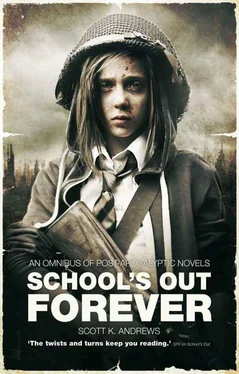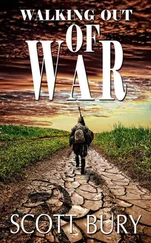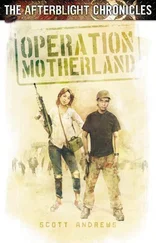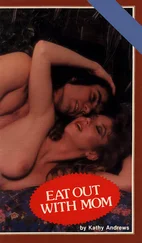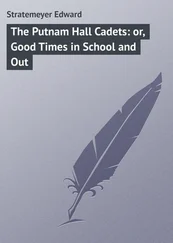“My name’s Lee,” I said, holding out my hand. “I think we’re going to be friends.”
“I would like that,” he replied, taking my hand.
“I don’t have any DVDs though.”
“Oh. Sod off then.”
IN THE FETID darkness of the cell, I looked at him. And he looked at me. And neither of us knew who we were looking at.
“But…” Dad shook his head and blinked his eyes as if he couldn’t believe what was happening.
“Your time was up,” I said. “I told you I’d come and get you if you didn’t come home within a year. So here I am.” I laughed and gestured at the dry concrete walls. “I’ve come to rescue you.”
His shoulders hunched and he gritted his teeth.
“You think this is funny?”
“No, I…”
“You think this is a fucking joke?”
“Dad, listen…”
“You were safe! I told you to go to school and stay there. You were safe! Christ. Everything I’ve been through, everything I’ve done here, the one thing, the one thing I held on to as my friends were dying, was that at least you were out of it, at least you were safe. What the hell are you doing here, Lee? Why couldn’t you just do as you were told, eh? Just this fucking once, why couldn’t you do what I told you?”
My stomach tied itself in knots as he shouted at me, just as it always had. When you hero worship your dad, the last thing you want to do is let him down, make him angry, give him a reason to shout at you.
It had been a long time since I’d felt the shame of a child who’s let down a parent, and it took me by surprise.
“Safe? Jesus, Dad, I’m safer here!” I protested.
“Do you have any idea what’s going on here?” He shouted. “What you’ve come running in to the middle of?” Then suddenly the anger just drained out of him. His shoulders slumped as he closed his eyes and bowed his head. “Oh, God, Lee,” he whispered. “What have you done? What have you done?”
I felt the shame slowly change and build into the kind of self-righteous anger unique to teenage boys having a fight with their dads.
“What have I done?” I hissed. “I’ll tell you what I’ve done. I’ve shot and killed my history teacher, shoved a knife into the heart of a prefect, shot three others, slit the throat of one of my friends, watched my best friend murdered right in front of me. I’ve been complicit in torture, executions and gang rape. I’ve been shot, stabbed, strangled, blown up and hanged. I’ve seen battles and massacres and all of it’s on me. My fault, my doing. All the bloodshed, all the death, all of it on me. And through all of it, all the shit, all the killing, all I kept telling myself, over and over again, was ‘Dad’ll be here soon, he’ll sort this out’. But you never came. You left me on my own in a fucking nightmare and you promised, you swore you’d come and find me. Where were you, Dad? Where the fuck were you?”
Hot, furious tears were streaming down my cheeks as I shouted terrible things at the person I loved most in the world.
“You left me, you bastard!” I shouted. “You fucking left me!”
My anger gave way to impotent sobbing. And then he was holding me, like I’d held him on the bed all those years before, and he was saying softly: “It’s okay, I’m here, everything’s okay now.”
And despite everything, it was. It really was.
“YOUR DAD WAS on the last plane out,” Tariq explained. “Part of his job was to liaise with local people, and he stayed as long as he could, trying to see that everyone he knew was taken care of. I lost count of how many people he helped when things got bad; bringing food and medicine, persuading the army doctors to visit the sick, even looking after some people himself when the withdrawal began.
“That’s why he was on the last plane out, because he stayed to help. But someone shot the plane down. We don’t know who or why. Cowardly thing to do, shooting down the last retreating plane. It was a Hercules, full of troops. It crashed over by the river and only your father and two other men survived. He is very lucky to be alive. Assuming he is still alive.”
“He’s alive,” I said, trying to persuade myself.
Tariq looked at me curiously. “What was it like in England?”
I sighed. “I heard it was chaos in the cities. Fires and mobs and mass graves. But where I was, in the countryside, it was kind of civilised. Lots of old ladies locking themselves away, desperate not to be a bother to anybody. The odd farmer started shooting anyone they saw on their land, but that was about as bad as it got. The trouble only really started after the plague burnt itself out.”
“It was not like that here,” said Tariq, shaking his head wearily. “Exactly the opposite. The British got orders to pull out and leave us to die. There was talk of a big operation back home.”
That triggered a memory: a dead man, tied to a chair screaming.
“Operation Motherland?”
“Yes, that was it. Your father never told me what it was, but the army just packed up and left. The Mahdi army tried to take control for a while. There were some massacres, lots of fighting. It was horrible. But then Sadr died of the plague and eventually there weren’t enough of them left and it just sort of dribbled away.
“For us, the plague ended the fighting. The big armies were gone and there was more than enough room for all the religious and racial groups to stay out of each other’s way. The Kurds have their own homeland now, in the north. The Shi’ites and the Sunnis have their own towns and holy places and they leave each other alone. And although there are only a few hundred of them left, it’s the first time in living memory that no-one’s been trying to wipe out the Marsh Arabs up in Maysan.
“The Cull was the best thing that ever happened to Iraq. It achieved what no army ever could: it brought peace.”
I couldn’t help but laugh. The irony that so much death could end the killing.
“So what went wrong?” I asked.
“After the British had gone, the Americans came to Basra.”
“What was so bad about that?”
Tariq looked at me in amazement, as if I’d just asked the stupidest question of all time.
“Did you not see the pictures from Abu Ghraib? Hear about the murders in Haditha?”
“Of course, but you’re not going to tell me that all American soldiers are like that. I mean, those were isolated incidents. Bad apples.”
Tariq inclined his head, as if to say “maybe”.
“You may be right. We have Brett with us, and there were others who deserted rather than follow the orders they were given. Brett is American and he has saved my life more than once.”
“Well then.”
“But what they did here, Lee. It was awful.”
“Then tell me.”
He thought for a second and then shook his head.
“No,” he said. “I will show you.”
“START AT THE beginning,” said Dad. “And tell me everything.”
So I did. From the moment I arrived at the school gates, to the explosion that levelled the place. I left nothing out. All the decisions I’d made, the consequences of those choices, the lives I’d ended or destroyed. The blood and the guilt. When I finished he just sat there and stared at me, tears rolling down his face. It took him a long time to find his voice.
“I don’t…” he whispered. “I’m so sorry.”
I shrugged. “Not your fault.”
We sat there in silence for a few moments, neither of us knowing what to say.
“Remember all those arguments you and Mum used to have about Grandad?” I asked, forcing a grin, changing the subject.
He smiled and nodded, wiping his eyes.
“He thought the army was the only place for a young man,” he said.
“‘Just look at your father,’” I said, imitating Grandad’s round, fruity, upper class vowels. “‘It made a man out of him.’”
Читать дальше
